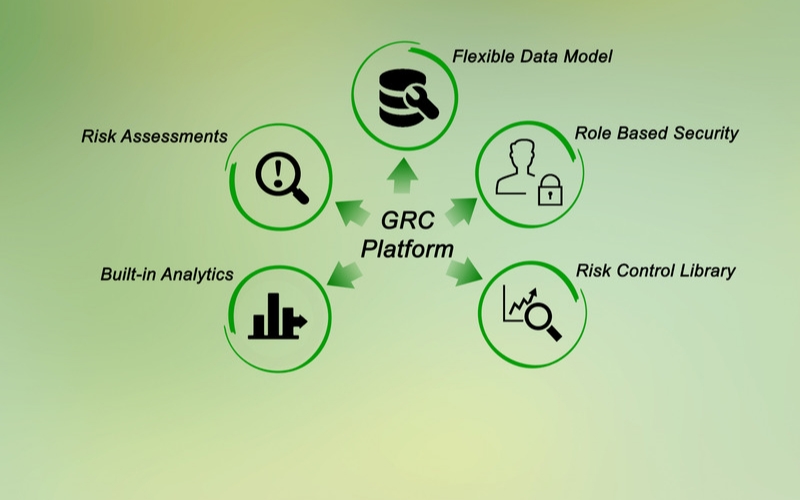As e-commerce continues its rapid growth, the environmental impact of online shopping is becoming increasingly apparent. Ethical e-commerce platforms are recognizing the need to adopt sustainable practices, and innovative payment solutions are emerging as a key tool for achieving this goal.
This article explores six cutting-edge payment solutions that can help e-commerce platforms reduce their carbon footprint, promote ethical sourcing, and contribute to a more sustainable future.
Table of Contents
Introduction to Sustainable Innovative Payment Solutions
Ethical e-commerce is more than a trend—it’s a movement. Consumers are increasingly demanding that their purchases reflect their values, pushing businesses to adopt more ethical practices. One crucial aspect of this shift is how payments are processed. The right payment solutions can not only streamline transactions, but also support sustainable practices.
Sustainability in payment solutions is vital for several reasons. First, it directly impacts the carbon footprint of transactions. Traditional payment methods often come with hefty environmental costs, including paper waste and significant energy consumption. Second, ethical payment practices can build trust and loyalty with consumers who prioritize sustainability.
This article will explore six groundbreaking payment solutions that cater to sustainable and ethical e-commerce. Each solution offers unique benefits, whether through reducing environmental impact, enhancing transparency, or ensuring fair practices. From blockchain technology to green banking, there’s a lot to cover. So let’s dive straight into these innovative solutions.
Solution 1: Blockchain Technology for Transparent Transactions
Blockchain technology has been making waves for its ability to revolutionize the way we conduct transactions. By offering a decentralized ledger, it ensures data integrity and transparency, which are crucial for ethical e-commerce platforms.
Traditional payment systems are often vulnerable to fraud and require trust in a central authority. Blockchain circumvents these issues by offering a secure, immutable record of transactions. Every transaction is verified by a network of computers, making it nearly impossible to alter or delete data without consensus from the entire network.
How Blockchain Ensures Transparency and Reduces Fraud
Transparency is a significant advantage of blockchain technology. Consumers can trace the journey of their payments, adding a layer of trust and accountability. This transparency is especially important for ethical e-commerce, where consumers want to know that their money is supporting fair practices.
Various e-commerce platforms are already leveraging blockchain for its transparency. For example, OpenBazaar and Origin Protocol use blockchain to create decentralized marketplaces, reducing the need for intermediaries and promoting fair trade.
Blockchain isn’t just a backend solution. It affects real-world outcomes by ensuring that payments are used ethically. When a payment system is transparent, it’s easier to ensure that workers are fairly compensated and environmental standards are met.
Case Studies of E-commerce Platforms Using Blockchain Ethically
While blockchain offers many benefits, it’s crucial to be aware of its limitations. The technology is still evolving, and there are concerns about its energy consumption. However, solutions like Proof of Stake (PoS) are emerging to mitigate these issues.
For e-commerce platforms looking to adopt blockchain, it’s essential to stay informed about the latest developments and choose a system that aligns with their ethical and sustainability goals.
Solution 2: Mobile Payment Platforms with Low Environmental Impact
Mobile payment platforms have gained significant traction in recent years, not just for their convenience but also for their lower environmental impact. These solutions streamline the transaction process, cutting down on the need for physical resources like paper receipts. By reducing the need for paper and plastic, mobile payments considerably lessen the carbon footprint associated with traditional payment methods.
One of the primary advantages of mobile payment platforms is their ease of use. Consumers can make transactions with a simple tap on their smartphones, which significantly cuts down on time and resource consumption.

Apps like Apple Pay, Google Wallet, and Samsung Pay have set the standard for secure, convenient, and quick transactions, making them appealing to eco-conscious consumers.
Eco-Friendly Mobile Payment Services
There are several eco-friendly mobile payment services specifically designed to minimize environmental impact. For example, services like EcoPayz emphasize sustainability by reducing paper usage and leveraging renewable energy sources for their infrastructure. These platforms help customers and businesses alike to make greener choices when it comes to payments.
Another great aspect of mobile payments is their ability to integrate with loyalty programs and digital receipts. This reduces the need for printed materials, which not only saves trees but also makes the transaction process smoother and more efficient. Digital tickets and receipts are easier to store and manage, reducing clutter and waste.
Impact of Mobile Payments on Reducing Carbon Footprint
Implementing mobile payments can significantly reduce the carbon footprint for e-commerce platforms. It’s a win-win situation for both businesses and consumers, making it easier to align financial transactions with environmental values.
For businesses looking to adopt mobile payment solutions, it’s on platforms that prioritize sustainability. Researching and choosing services that utilize green energy and digital alternatives to paper can make a big difference in creating a more responsible e-commerce environment.
Solution 3: Digital Wallets and Their Role in Ethical E-Commerce
Digital wallets have revolutionized the way we handle money. These wallets offer a range of benefits, from enhanced security to convenience, but their role in promoting ethical e-commerce shouldn’t be overlooked. They integrate advanced encryption techniques, reducing the risk of data breaches and ensuring that transactions are secure.
One of the biggest advantages of digital wallets is that they reduce the need for physical cards and cash, which in turn lowers plastic and paper waste. This aspect makes them an eco-friendly choice for consumers and businesses aiming to reduce their environmental footprint. Think about it: fewer plastic cards mean less plastic waste, and digital receipts cut down on paper use.
Security and Ethical Considerations
Security is a significant concern for online shoppers, and digital wallets address this well by offering multiple layers of protection. Features like multi-factor authentication, biometric verification, and tokenization make it extremely difficult for unauthorized parties to access sensitive information. This level of security builds trust among consumers who prioritize safe and ethical transactions.
On ethical considerations, digital wallets can also play a pivotal role in promoting fair trade practices. Platforms that accept digital wallets often have the capability to track and verify the origins of products, ensuring that they are produced under fair working conditions. This transparency allows consumers to make more informed purchasing decisions, aligning their spending with their values.
Examples of Popular Digital Wallets Promoting Ethical Practices
Platforms like PayPal, Venmo, and Alipay have set an industry standard for combining security and convenience, but they’ve also made strides in ethical practices. For instance, PayPal’s initiative to support small and marginalized businesses provides consumers with more ethical spending options. By choosing to support businesses that uphold ethical standards, consumers can contribute to a broader culture of fairness and responsibility.
For e-commerce platforms looking to adopt digital wallets, it’s important to consider options that offer robust security features and align with sustainability goals. It’s not just about convenience; it’s about making a positive impact and supporting a payment ecosystem that values ethics and sustainability.
Solution 4: Cryptocurrency for Sustainable Online Transactions
Cryptocurrency has emerged as a revolutionary force in the finance world, offering decentralized, secure, and transparent payments. While traditional cryptocurrencies like Bitcoin have faced criticism for their high energy consumption, new eco-friendly alternatives are paving the way for more sustainable online transactions.
One of the key advantages of cryptocurrencies is the level of transparency they bring. Every transaction is recorded on a public ledger, meaning consumers can trace where their money goes. This transparency is invaluable for ethical e-commerce, ensuring funds are used responsibly. Platforms that accept eco-friendly cryptocurrencies can provide customers with peace of mind, knowing their spending supports sustainable initiatives.

Environmental Concerns With Traditional Cryptocurrencies
However, it’s crucial to acknowledge the environmental concerns linked to certain cryptocurrencies. Bitcoin and Ethereum, for instance, rely on energy-intensive proof-of-work (PoW) mechanisms. This has led to a surge in electricity consumption, raising questions about the sustainability of these digital currencies.
Fortunately, there are solutions designed to tackle these issues. Eco-friendly cryptocurrencies like Cardano (ADA) and Stellar (XLM) leverage proof-of-stake (PoS) mechanisms, which significantly cut down on energy usage. These cryptocurrencies offer the benefits of secure, decentralized transactions without the hefty environmental toll, making them suitable for ethical e-commerce platforms.
Exploring Eco-Friendly Cryptocurrencies
To adopt cryptocurrency as a payment solution, e-commerce platforms should conduct thorough research, ensuring that the chosen currency aligns with their sustainability goals. It’s important to stay updated on technological advancements and regulatory considerations, as the cryptocurrency landscape is continually evolving.
By embracing eco-friendly cryptocurrencies, ethical e-commerce platforms can offer customers not just innovative payment choices but also reinforce their commitment to sustainable practices. The future of e-commerce lies in balancing technology with ethics, and eco-friendly cryptocurrencies present a promising avenue for achieving this.
Solution 5: Buy Now, Pay Later (BNPL) Options Aligning with Sustainable Goals
Buy Now, Pay Later (BNPL) options have recently surged in popularity, offering consumers the flexibility to spread their payments without the hefty interest fees usually associated with credit cards. However, not all BNPL services align with sustainable or ethical practices, so it’s essential to choose responsibly.
Understanding BNPL Services
BNPL services, like Afterpay, Klarna, and Affirm, provide an alternative to traditional credit, often attracting younger, tech-savvy consumers. When properly managed, these services enable a smoother shopping experience without leading customers into unmanageable debt. This approach can help promote sustainable consumption by allowing consumers to budget more effectively.
However, it’s crucial to look beyond the convenience factor and consider how these services operate. Some BNPL providers are starting to incorporate sustainable practices within their business models. For example, companies like Sezzle offer programs that help customers improve their credit scores and provide an interest-free installment structure that promotes responsible spending.
Sustainable and Responsible Lending
Ethical BNPL providers often emphasize transparency, ensuring customers are fully aware of their repayment schedules and any potential fees involved. This transparency helps build trust and encourages responsible spending. Additionally, some providers offer a selective approach, partnering only with merchants that adhere to fair trade and sustainable practices.
Ethical BNPL Providers in the Market
To make the most out of BNPL services while aligning with sustainable goals, e-commerce platforms should carefully select providers known for their ethical practices. Ensuring that BNPL options come with clear terms and conditions will help maintain consumer trust and promote responsible financial behavior.
By incorporating ethical BNPL options, e-commerce platforms can provide more flexible payment solutions to their customers, promoting financial inclusivity while supporting sustainability. It’s a way to offer convenience without compromising on ethical and environmental standards.
Solution 6: Green Banking and Its Impact on E-Commerce
Green banking is a transformative approach in financial services, centered around environmental sustainability. This involves banks investing in eco-friendly projects, offering green loans, and adopting practices that reduce their carbon footprint. For ethical e-commerce platforms, partnering with green banks can provide numerous benefits, both ethically and practically.

Green banks prioritize funding for sustainable projects, whether that’s renewable energy, carbon offset initiatives, or business models rooted in circular economy principles. By aligning with green banks, e-commerce platforms can ensure that their financial transactions actively contribute to environmental sustainability. This lowers the overall ecological footprint of the business and conveys a strong commitment to environmental values to their customers.
Benefits of Green Banking for E-commerce Platforms
The benefits of green banking extend beyond environmental impact. Many green banks offer financial incentives, such as lower fees and higher interest rates on green savings accounts, which can be appealing for both businesses and consumers. For e-commerce platforms, these incentives can translate into cost savings and more financial resources to invest in sustainable practices.
Moreover, green banking can improve a company’s brand image. Partnering with a green bank sends a powerful message to consumers, signaling that the company prioritizes sustainability at every level. This not only attracts eco-conscious consumers but also enhances customer loyalty, as more people want to support businesses that share their values.
For businesses interested in green banking, the first step is to research banks that have a proven track record in sustainability. Many reputable financial institutions now offer green banking options, so it’s worth exploring what’s available and assessing how these options align with your business goals. Whether it’s through green loans, sustainable investment opportunities, or carbon offset programs, there are various ways to integrate green banking into your e-commerce strategy.
Examples of E-Commerce Platforms Partnering With Green Banks
Adopting green banking practices isn’t just a nod to sustainability; it’s a strategic move that can yield tangible benefits. By partnering with green banks, e-commerce platforms can make a meaningful impact on the planet while also enjoying financial and reputational gains.
Conclusion and Future Trends in Sustainable Payment Solutions
Looking at the various sustainable payment solutions, it’s clear that there are numerous ways to align financial practices with ethical and environmental values. Each solution, from blockchain technology to green banking, offers unique benefits that can support a more sustainable e-commerce landscape.
Emerging trends indicate that the future holds even more promise for sustainable payment solutions. Innovation in blockchain technology continues to reduce its carbon footprint, while digital wallets and mobile payments become increasingly sophisticated and energy-efficient. Moreover, as more consumers prioritize sustainability, the demand for eco-friendly payment methods will likely grow, encouraging further advancements.
Adopting these innovative payment methods is not just about staying current with trends—it’s about taking proactive steps to support a sustainable future. Businesses that integrate these solutions can not only reduce their environmental impact but also build stronger, more transparent relationships with their customers.
The journey to sustainable e-commerce doesn’t stop here. Keeping an eye on new developments and remaining flexible to adopt emerging technologies will be key. As these payment solutions evolve, they will continue to offer new ways to promote ethical and sustainable practices, benefiting both businesses and consumers.




